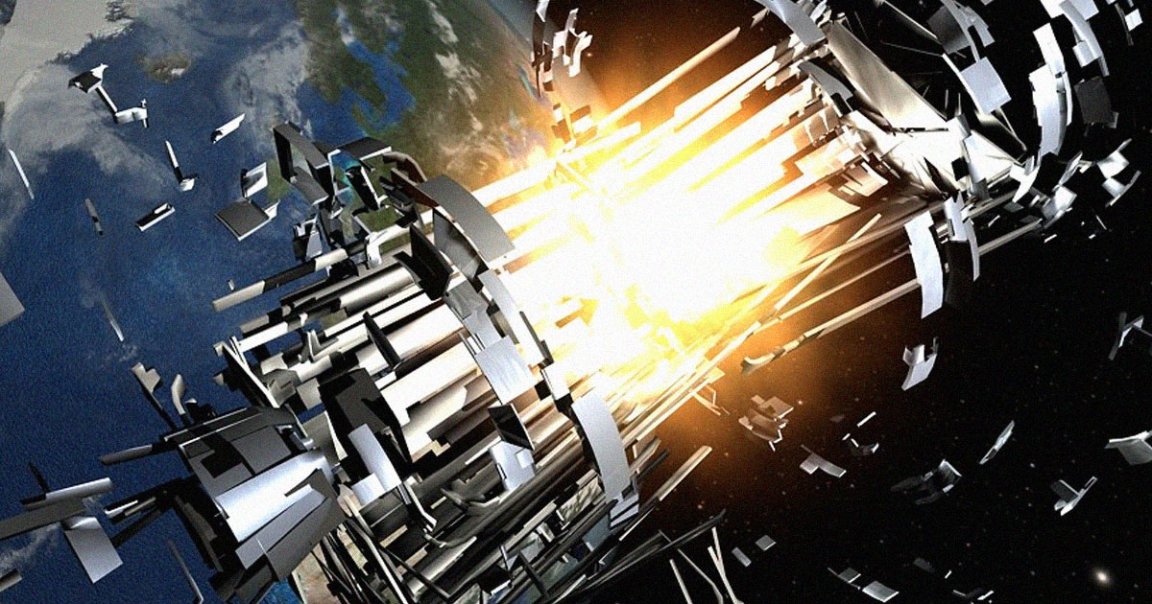
Oh, Good
According to the Guardians of the US Space Force, a mysterious Russian satellite broke apart in orbit early last month, leaving a trail of at least 85 pieces of potentially dangerous space debris in its wake.
The mighty watchful eyes over at America’s 18th Space Defense Squadron tweeted the news on Monday, noting that the left-behind junk is orbiting the Earth at an altitude of 726 miles. That’s pretty far away, at least for now — per Space.com, it’ll likely take over a century for our atmosphere to drag the debris back down to our planet.
Extremely Mysterious Object
We don’t know much about the satellite that disintegrated dubbed Kosmos 2499 — let alone why.
What we do know, according to RussianSpaceWeb.com’s Anatoly Zak, is that the “ghost” satellite was launched back in 2013 alongside three Rodnik military communications satellites. But when it was originally launched, it wasn’t officially listed in the launch manifest.
American satellites initially clocked it as just an “object,” but when it started to suddenly move, the US, per Zak’s reporting, re-classified the object as a “payload” in October of 2014.
The rumor, according to Space.com, was that Roscosmos had been attempting to secretly test a chase-and-track spacecraft, possibly designed to disarm or scramble other satellites.
Per Space.com, Roscosmos later defended the craft in a December 2014 press conference, claiming that its purpose was for research only.
Zip and Zoom On
Alas, Kosmos 2499’s days of ominously zipping through outer space are now over. Worse yet, the satellite’s many fragments are only adding to our ever-growing space junk problem.
As Space.com notes, the European Space Agency is tracking 36,500 pieces of human-made orbital debris currently floating around our planet; if you include non-trackable space litter, that number is probably in the millions.
And it’s a very real issue for astronauts — spacewalks, for example, are becoming increasingly more dangerous — and even people back down on the surface, who will likely see an increase in incidents involving falling space junk damaging properties and infrastructure, and even harming humans.
In any case, so long, Kosmos 2499. Die knowing that the trash you leave behind may indeed mess with satellites, rockets, and even space stations in the future.
More on Russian space debris: Russia Forced to Dodge Space Debris From When It Blew Up Satellite